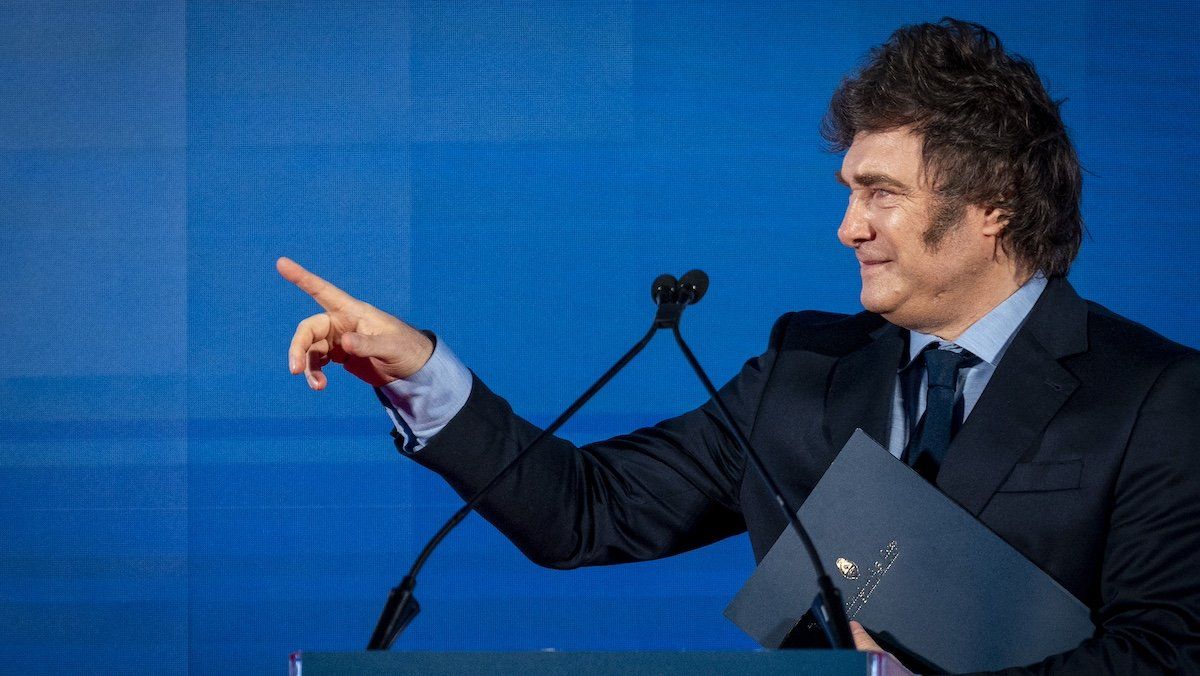A year ago, Argentina’s eccentric, wolverine-haired, “anarcho-libertarian” president Javier MIlei took office with a chainsaw and a plan: to tackle the country’s triple-digit inflation and chronic debt problems, he would hack government spending to pieces — and it seems to be working.
Latin America’s third largest economy has emerged from recession for the first time since the third quarter of 2023, with GDP growing nearly 4% since then. Month-on-month inflation has plunged from 25% last December to just 2.4% a month ago.
How’d he do it? Since coming to office, Milei has scrapped more than half of the government ministries, slashed spending on public salaries, devalued the currency, and put pension growth in a chokehold.
The subsequent return to growth is a vindication for Milei, whose state-chopping has won him plaudits from financial markets and the International Monetary Fund. It’s also earned glowing admiration from Donald Trump who envisions a similar gutting of the US Federal government (though his protectionist impulses contrast with Milei’s purer market fundamentalism).
Milei’s approach has been painful for many. The percentage of Argentines living in poverty has surged by 13 percentage points to 53% since he took office. Milei’s bet is that this is merely short term pain. He could yet be right: experts see the economy expanding by 5% next year after contracting 3% in 2024. With mid-term elections approaching in 2025, we’ll soon learn how most ordinary Argentines feel about Milei’s methodical massacres.
